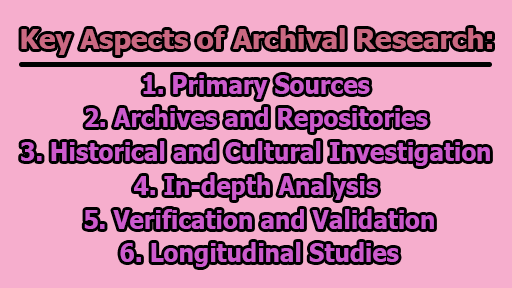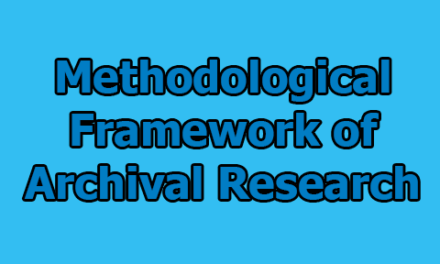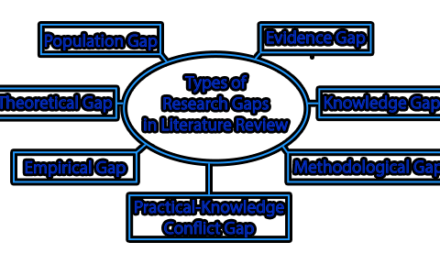Key Aspects of Archival Research:
Archival research, a cornerstone of scholarly inquiry, constitutes a meticulous exploration of primary sources housed in archives and repositories. This methodological pursuit involves delving into historical materials, scrutinizing their authenticity, and interpreting diverse narratives to unveil the intricate tapestry of human history. Key aspects of archival research encompass the study of primary sources, engagement with repositories, historical and cultural investigation, in-depth analysis, verification and validation, and longitudinal studies. These facets collectively contribute to a comprehensive understanding of past societies, shedding light on their evolution and shaping contemporary perspectives.
1. Primary Sources (Cornerstone of Archival Research): Primary sources form the cornerstone of archival research. These sources encompass firsthand accounts, original documents, manuscripts, photographs, artifacts, audio recordings, and ephemera created contemporaneously with the events or periods under investigation. These materials offer unfiltered, direct insights into historical moments, societal norms, and cultural nuances, providing researchers with tangible connections to the past. Personal letters, government records, newspapers, maps, and oral histories are examples of primary sources that offer diverse perspectives and multifaceted narratives crucial for historical understanding.
2. Archives and Repositories (Custodians of Historical Treasures): Archives and repositories serve as guardians of historical treasures, housing an extensive array of primary sources. These institutions vary in scale and scope, ranging from national archives preserving government documents to local repositories safeguarding community histories. University libraries, museums, private collections, and digital repositories also play pivotal roles in preserving and providing access to invaluable historical materials. The archival infrastructure ensures the cataloging, preservation, and accessibility of these materials, enabling researchers to explore and engage with diverse historical records.
3. Historical and Cultural Investigation (Illuminating the Past): Archival research facilitates historical and cultural investigations that illuminate various facets of human civilization. By examining primary sources, researchers delve into specific historical periods, events, or social phenomena, aiming to comprehend the intricacies of past societies. This investigation enables scholars to uncover hidden narratives, marginalized voices, and previously overlooked aspects of history. Moreover, it aids in contextualizing historical events within broader socio-cultural, political, and economic frameworks, offering comprehensive insights into the complexities of human experience.
4. In-depth Analysis (Unveiling Contextual Significance): In archival research, in-depth analysis is paramount to unveil the contextual significance of primary sources. Researchers critically scrutinize documents, evaluating their authenticity, reliability, biases, and relevance to the research inquiry. This analytical process involves deciphering handwriting, interpreting languages, and understanding the socio-cultural contexts in which the materials were produced. By triangulating multiple sources and engaging in comparative analysis, researchers construct cohesive narratives, unraveling the layers of historical events and societal transformations.
5. Verification and Validation (Ensuring Credibility): Verification and validation are integral components of archival research methodology. Researchers rigorously assess the credibility and authenticity of primary sources to ensure scholarly integrity. This process involves cross-referencing information with other sources, verifying factual accuracy, and corroborating evidence to substantiate historical claims. Additionally, researchers employ critical thinking and source criticism to discern potential biases or discrepancies within the materials, thereby ensuring the reliability of their findings.
6. Longitudinal Studies (Tracing Evolution Over Time): Longitudinal studies in archival research involve tracing the evolution of historical phenomena, trends, or societal changes over extended periods. By analyzing primary sources spanning decades or centuries, researchers discern patterns, transformations, and continuities within societies. This longitudinal perspective enables scholars to elucidate historical trajectories, identify causal relationships, and comprehend the enduring impact of past events on contemporary societies. Longitudinal studies contribute to a nuanced understanding of historical processes, offering insights into the dynamics of cultural evolution and societal development.
In essence, archival research serves as a gateway to unlocking the mysteries of the past, offering invaluable insights into the complexities of human civilization. Through the scrutiny of primary sources, careful analysis, and longitudinal studies, researchers illuminate historical narratives, rectify biases, and preserve the legacy of diverse voices. This scholarly pursuit not only enriches academic knowledge but also fosters a deeper appreciation for cultural heritage, enabling us to grasp the continuum of human experiences. As custodians of historical truth, archival research underscores the significance of preserving, interpreting, and disseminating the treasures of our collective history for generations to come.

Library Lecturer at Nurul Amin Degree College










